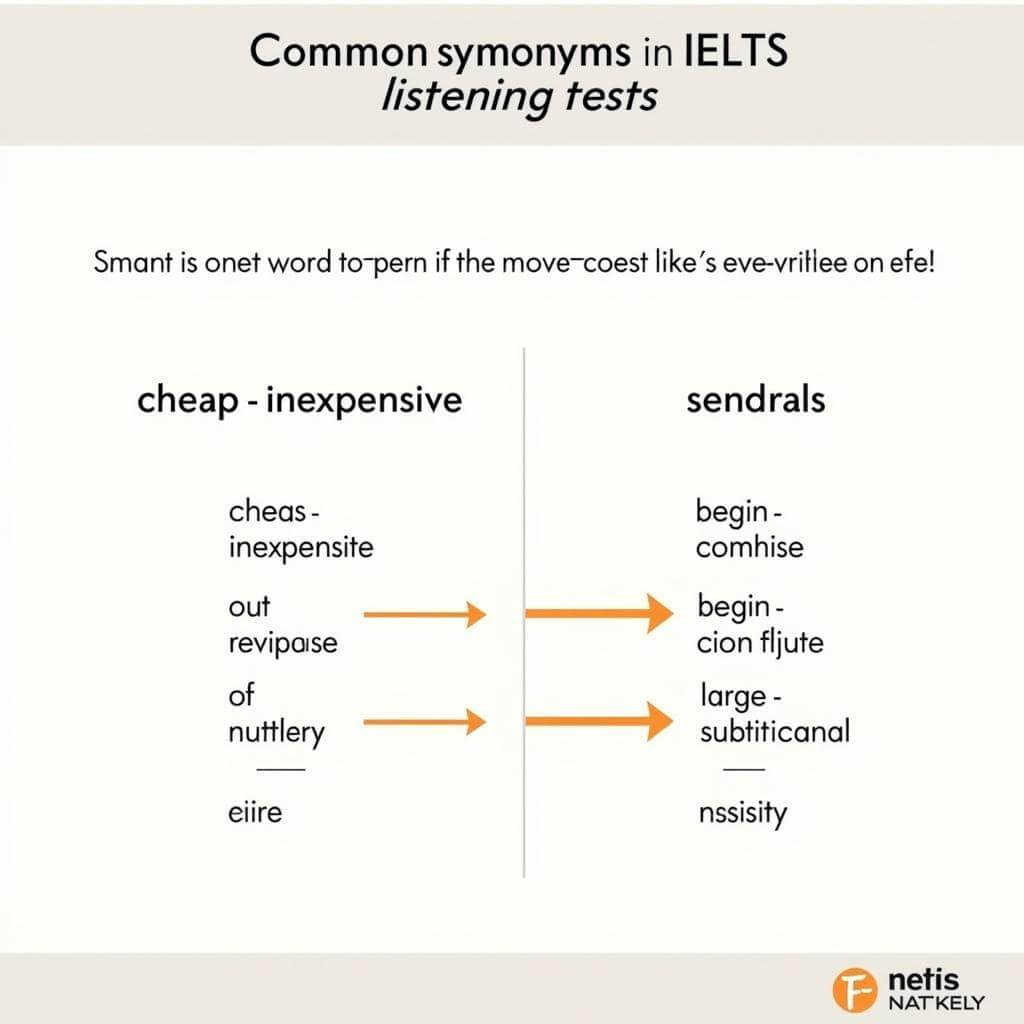IELTS Listening can be a challenging component of the test, but with the right strategies, you can significantly improve your performance. One of the most effective techniques is focusing on key vocabulary. This approach not only enhances your understanding of the audio but also helps you quickly identify the correct answers. Let’s explore how to master this skill and boost your IELTS Listening score.
Understanding the Importance of Key Vocabulary in IELTS Listening
Focusing on key vocabulary is crucial in IELTS Listening for several reasons. Firstly, it helps you predict the type of information you’ll hear, allowing you to prepare mentally for specific answers. Secondly, it enables you to identify key points quickly, which is essential given the time constraints of the test. Lastly, recognizing key vocabulary aids in understanding the context and overall meaning of the audio, even if you miss some details.
Types of Key Vocabulary in IELTS Listening
- Topic-specific words
- Signal words and phrases
- Synonyms and paraphrases
- Numbers and dates
- Names and places
Strategies for Identifying and Utilizing Key Vocabulary
1. Pre-listening Preparation
Before the audio begins, take a moment to scan the questions and identify potential key vocabulary. This practice will prime your brain to listen for specific words and concepts.
2. Active Listening for Synonyms
IELTS often uses synonyms or paraphrases of words in the questions. Train yourself to recognize these alternatives to improve your chances of catching the correct answer.

3. Focus on Signal Words
Pay attention to transitional phrases and signal words that indicate important information is coming up. Examples include “however,” “in contrast,” “for example,” and “as a result.”
4. Practice with Authentic Materials
Regularly expose yourself to a variety of English accents and topics through podcasts, news broadcasts, and academic lectures. This will expand your vocabulary and improve your ability to recognize key terms in different contexts.
5. Develop Note-taking Skills
Learn to jot down key vocabulary quickly and efficiently. This skill will help you avoid unnecessary details in answers and focus on the essential information.
Applying Key Vocabulary Focus to Different IELTS Listening Question Types
Multiple Choice Questions
For multiple-choice questions, identify the key vocabulary in both the question stem and the answer options. Listen carefully for these words or their synonyms in the audio.
Matching Questions
In matching tasks, create a mental list of key terms from both columns. This will help you quickly connect the correct pairs as you hear the relevant information.
Completion Tasks
For fill-in-the-blank or sentence completion questions, the words immediately before and after the blank are often key vocabulary. Pay close attention to these contextual clues.
Common Pitfalls When Focusing on Key Vocabulary
1. Overlooking Context
While focusing on key vocabulary is important, don’t forget to consider the overall context. Sometimes, the meaning can change based on the surrounding information.
2. Ignoring Pronunciation Variations
Be prepared for different pronunciations of key vocabulary, especially when listening to various accents. Practice how to handle technical vocabulary in IELTS listening to improve your comprehension.
3. Fixating on Single Words
Avoid becoming too fixated on individual words. Sometimes, the key vocabulary might be a phrase or an idea expressed over several sentences.
4. Neglecting Other Listening Skills
While focusing on key vocabulary is crucial, don’t neglect other important listening skills such as focusing on detailed listening sections and improving recognition of synonyms.
Effective Practice Techniques for Improving Key Vocabulary Focus
1. Vocabulary Building Exercises
Regularly engage in vocabulary-building exercises focused on common IELTS topics. Create word lists, use flashcards, or try vocabulary apps to expand your lexicon.
2. Transcription Practice
Listen to short audio clips and try to transcribe them word-for-word. This exercise will sharpen your ability to catch key vocabulary and improve your overall listening skills.
3. Prediction Exercises
Before listening to an IELTS practice test, look at the questions and try to predict the key vocabulary you might hear. Then, compare your predictions with the actual audio.
4. Timed Practice
Simulate test conditions by giving yourself strict time limits when practicing. This will help you develop the skill of quickly identifying and utilizing key vocabulary under pressure.
Conclusion
Focusing on key vocabulary is a powerful strategy for improving your IELTS Listening score. By honing this skill, you’ll be better equipped to understand the audio, identify correct answers, and manage your time effectively during the test. Remember to practice regularly, expose yourself to a variety of English accents and topics, and always consider the context when interpreting key vocabulary. With dedication and the right approach, you can significantly enhance your performance in the IELTS Listening section.